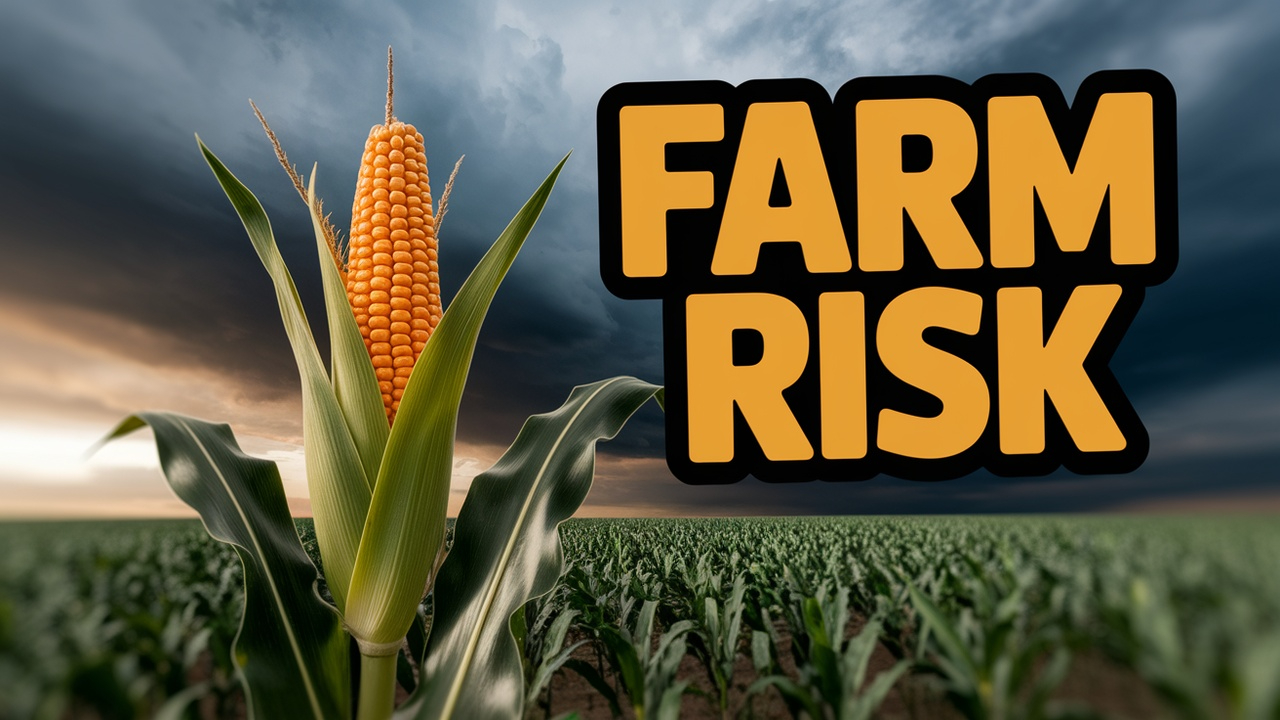
This comprehensive course on Agriculture Risk Management provides participants with a thorough understanding of the various risks in agriculture, strategies for managing those risks, and the tools and techniques necessary for effective decision-making. The course emphasizes practical applications and real-world examples to equip learners with the skills needed to navigate the complexities of agricultural risk management.
Course Levels
-
Level 1: Introduction to Agriculture Risk
In this level, learners will be introduced to the concept of risk in agriculture, including its importance and types. Basic terminology and foundational knowledge will be established.
-
Level 2: Risk Assessment Techniques
This level focuses on techniques for assessing risks in agriculture, including qualitative and quantitative methods. Learners will gain skills in identifying and evaluating risks effectively.
-
Level 3: Risk Management Strategies
Learners will explore various strategies to manage agricultural risks, including risk avoidance, mitigation, transfer, and acceptance. This level emphasizes strategic decision-making.
-
Level 4: Financial Instruments for Risk Management
This level covers financial tools and instruments available for risk management in agriculture, including insurance, derivatives, and government programs.
-
Level 5: Climate Change and Agricultural Risk
Participants will learn about the impact of climate change on agriculture and how it affects risk management strategies. Adaptation and mitigation strategies will be discussed.
-
Level 6: Technological Innovations in Risk Management
This level introduces learners to emerging technologies that aid in agricultural risk management, such as precision agriculture, data analytics, and remote sensing.
-
Level 7: Case Studies in Agricultural Risk Management
This level uses real-world case studies to illustrate successful agriculture risk management practices. Learners will analyze different scenarios and outcomes.
-
Level 8: Regulatory and Policy Frameworks
This level covers the regulatory environment surrounding agricultural risk management, including policies at local, national, and international levels.
-
Level 9: Future Trends in Agricultural Risk Management
Learners will explore future trends and challenges in agricultural risk management, including globalization, technology, and sustainability.
Course Topics
-
Lessons Learned from Failures
# Lessons Learned from Failures in Agricultural Risk Management ## Introduction In the realm of agricultural risk management, failures are not merely setbacks but valuable learning opportunities. Und...
-
Case Study 1: Crop Failure Management
# Case Study 1: Crop Failure Management Crop failure is a significant risk that can severely impact agricultural productivity and farmers' livelihoods. This case study explores various strategies for...
-
Crop Insurance Policies
# Crop Insurance Policies ## Introduction Crop insurance is a vital tool for farmers and agricultural producers to manage risks associated with crop production. Through various policies, farmers can ...
-
Basic Risk Terminology
# Basic Risk Terminology Understanding risk is crucial in agriculture, as it directly impacts decision-making and management strategies. This section introduces essential risk terminology used in agr...
-
Drones in Agriculture Risk Assessment
# Drones in Agriculture Risk Assessment Drones, also known as Unmanned Aerial Vehicles (UAVs), have become increasingly pivotal in modern agricultural practices, particularly in risk assessment. This...
-
Precision Agriculture Technologies
# Precision Agriculture Technologies Precision agriculture (PA) represents a technological revolution in farming that maximizes crop yield and minimizes waste by using data-driven approaches. It leve...
-
Agricultural Insurance Overview
# Agricultural Insurance Overview ## Introduction to Agricultural Insurance Agricultural insurance is a financial product designed to protect farmers and agricultural businesses from losses due to va...
-
Preparing for Future Challenges
# Preparing for Future Challenges in Agricultural Risk Management ## Introduction In the ever-evolving landscape of agriculture, the ability to prepare for future challenges is paramount. This prepar...
-
The Future of Agricultural Technology
# Introduction As we advance into the 21st century, agricultural technology is evolving rapidly, driven by the need to enhance productivity, sustainability, and resilience in the face of climate chang...
-
Identifying Risk Factors
# Identifying Risk Factors in Agriculture Agriculture is inherently risky due to its dependence on numerous unpredictable factors. Understanding these risk factors is vital for effective risk managem...
-
Integrating Climate Risk into Management Plans
# Integrating Climate Risk into Management Plans Climate change is increasingly recognized as a significant factor affecting agricultural productivity and sustainability. Integrating climate risk int...
-
Sustainability and Risk Management
# Sustainability and Risk Management in Agriculture ## Introduction Sustainability in agriculture has become a paramount concern for stakeholders worldwide. It encompasses practices that meet current...
-
Types of Agricultural Risks
# Types of Agricultural Risks Agricultural risks refer to the uncertainties and potential hazards that can adversely impact agricultural operations. Understanding these risks is crucial for effective...
-
Blockchain for Transparency and Risk Reduction
# Blockchain for Transparency and Risk Reduction ## Introduction Blockchain technology, originally designed to support cryptocurrencies, is now recognized for its potential in various sectors, includ...
-
Risk Assessment Tools and Software
# Risk Assessment Tools and Software Risk assessment is a crucial aspect of agriculture risk management that involves identifying, analyzing, and evaluating uncertainties related to agricultural oper...
-
International Standards and Agreements
# International Standards and Agreements International standards and agreements play a critical role in the field of agriculture risk management by providing a framework that ensures safety, quality,...
-
Case Study 3: Weather-related Crop Insurance
# Weather-related Crop Insurance ## Introduction Weather-related crop insurance is a crucial component of agricultural risk management. It helps farmers mitigate the financial impact of adverse weath...
-
The Role of Government in Risk Management
# The Role of Government in Risk Management ## Introduction In the realm of agriculture, risk management is crucial for ensuring food security, economic stability, and sustainable development. The go...
-
Case Study 4: Market Risk Management
# Case Study 4: Market Risk Management Market risk management is a crucial aspect of agricultural risk management, as it involves understanding and mitigating the risks associated with price fluctuat...
-
Risk Mapping and Analysis
# Risk Mapping and Analysis Risk mapping and analysis is a critical component of the risk assessment process in agriculture. This technique involves identifying, assessing, and visualizing risks that...
- And 25 more topics...